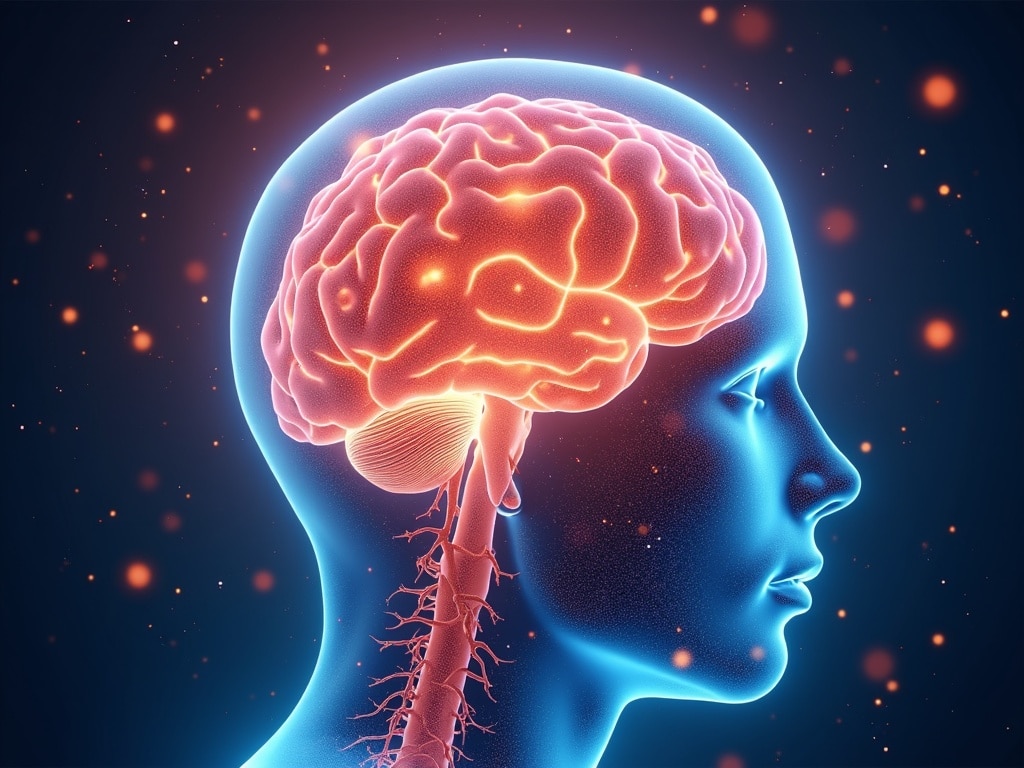Unlocking the Mystery: The Link Between Chronic Stress and Inflammation
Imagine your body as a finely tuned orchestra. When all instruments play in harmony, the music is beautiful. But what happens when the percussion section starts banging wildly out of sync? That's akin to chronic stress and inflammation wreaking havoc on your health. While acute stress can be a motivator, chronic stress is like the percussionist who just. won't. stop. And one of the major consequences of this constant internal noise is a persistent state of inflammation.
Stress: More Than Just a Feeling
We often think of stress as a purely mental or emotional state – a looming deadline, a fraught relationship, a never-ending to-do list. But stress is profoundly physical. When you perceive a threat, your body kicks into fight or flight mode, a cascade of hormonal and physiological changes designed to help you survive. This involves the release of cortisol, adrenaline, and other stress hormones.
The Acute Stress Response: A Necessary Evil
In short bursts, this stress response is crucial. It sharpens your focus, boosts your energy, and prepares you to face danger. Think of a lion suddenly appearing on your path. Your body needs that immediate surge of power to either fight or run away. Once the danger passes, your body is designed to return to its baseline state, ready for the next potential threat.
Chronic Stress: When the Alarm Never Stops
The problem arises when the lion never leaves. In modern life, the lions are often persistent stressors like financial worries, demanding jobs, or ongoing relationship problems. These stressors keep your body in a perpetual state of high alert. This constant activation of the stress response leads to a variety of negative health outcomes, including – critically – chronic inflammation.
Inflammation: The Body's Double-Edged Sword
Inflammation is a natural biological process. It’s your body’s way of protecting itself from injury and infection. When you cut your finger, the redness, swelling, and pain you experience are all signs of inflammation at work, helping to heal the wound and fight off potential invaders. Like the stress response, inflammation is vital for survival.
Acute Inflammation: A Healer
Acute inflammation is short-lived and resolves once the threat is neutralized. It’s a precise and targeted response, orchestrated by a complex interplay of immune cells and signaling molecules. Once the job is done, the inflammatory process shuts down, and the body returns to its normal state.
Chronic Inflammation: A Silent Killer
Chronic inflammation, on the other hand, is a persistent, low-grade inflammatory state. It’s like a smoldering fire within your body, constantly causing damage to tissues and organs. It can arise from various factors, including persistent infections, exposure to toxins, autoimmune disorders, and, as we’re discussing, chronic stress. And chronic inflammation is strongly linked to a host of serious health problems, from heart disease and diabetes to arthritis, Alzheimer's disease, and even cancer.
The Vicious Cycle: How Stress Fuels Inflammation
So, how exactly does chronic stress trigger chronic inflammation? The link is complex and involves several interconnected pathways.
- Hormonal Imbalance: Chronic stress disrupts the delicate balance of hormones in your body. Prolonged elevation of cortisol, for example, can interfere with the immune system's ability to function properly, making it more prone to overreact and trigger inflammation.
- Immune Dysregulation: Stress can impair the function of immune cells, making them less effective at fighting off infections and more likely to attack healthy tissues. This can lead to an autoimmune-like response, further fueling inflammation.
- Increased Gut Permeability: Stress can compromise the integrity of the gut lining, leading to leaky gut. This allows bacteria and other substances to leak from the gut into the bloodstream, triggering an inflammatory response.
- Lifestyle Factors: Chronic stress often leads to unhealthy lifestyle choices, such as poor diet, lack of exercise, and sleep deprivation, all of which can contribute to inflammation. People under stress are more likely to reach for processed foods, sugary drinks, and alcohol, all of which can exacerbate inflammation.

The Consequences: What Chronic Stress and Inflammation Can Do to Your Body
The long-term consequences of chronic stress and inflammation can be devastating. Here are just a few of the health problems linked to this dangerous duo:
- Cardiovascular Disease: Inflammation contributes to the formation of plaques in the arteries, increasing the risk of heart attack and stroke.
- Type 2 Diabetes: Inflammation can interfere with insulin signaling, leading to insulin resistance and type 2 diabetes.
- Arthritis: Inflammation is a key driver of joint pain and damage in rheumatoid arthritis and osteoarthritis.
- Alzheimer's Disease: Chronic inflammation in the brain is implicated in the development of Alzheimer's disease.
- Cancer: Inflammation can promote the growth and spread of cancer cells.
- Mental Health Disorders: Chronic stress and inflammation are linked to depression, anxiety, and other mental health problems.
- Autoimmune Diseases: Conditions like lupus, rheumatoid arthritis, and multiple sclerosis are characterized by the body attacking its own tissues, driven by inflammation.
Breaking the Cycle: Strategies for Stress Management and Inflammation Reduction
The good news is that you *canbreak the cycle of chronic stress and inflammation. By adopting healthy lifestyle habits and practicing effective stress management techniques, you can significantly reduce your risk of developing these and other health problems.
Lifestyle Changes: Your First Line of Defense
- Adopt an Anti-Inflammatory Diet: Focus on whole, unprocessed foods, such as fruits, vegetables, whole grains, lean protein, and healthy fats. Limit your intake of processed foods, sugary drinks, red meat, and unhealthy fats. Foods rich in antioxidants, like berries, leafy greens, and fatty fish containing omega-3s, can help combat inflammation.
- Engage in Regular Exercise: Exercise has powerful anti-inflammatory effects. Aim for at least 30 minutes of moderate-intensity exercise most days of the week. Find activities you enjoy, whether it's walking, running, swimming, dancing, or yoga.
- Prioritize Sleep: Aim for 7-8 hours of quality sleep per night. Sleep deprivation can worsen both stress and inflammation. Establish a regular sleep schedule and create a relaxing bedtime routine.
Stress Management Techniques: Taming the Lion
- Mindfulness Meditation: Practicing mindfulness meditation can help you become more aware of your thoughts and feelings, allowing you to respond to stress in a more mindful and less reactive way. Even a few minutes of daily meditation can make a difference.
- Deep Breathing Exercises: Deep breathing exercises can help activate the parasympathetic nervous system, which promotes relaxation and reduces stress. Try taking slow, deep breaths, focusing on expanding your belly as you inhale.
- Yoga and Tai Chi: These practices combine physical postures, breathing techniques, and meditation, making them powerful tools for stress reduction and inflammation management.
- Spending Time in Nature: Studies have shown that spending time in nature can lower cortisol levels and reduce stress. Take a walk in the park, hike in the woods, or simply sit outside and enjoy the fresh air.
- Social Connection: Connecting with loved ones can provide emotional support and reduce feelings of isolation, which can exacerbate stress. Make time for friends and family, and nurture your relationships.
Supplements: A Possible Assist (Consult Your Doctor)
Certain supplements may also help reduce inflammation, but it’s important to talk to your doctor before taking anything new, especially if you have underlying health conditions or are taking medications. Some options include:
- Omega-3 Fatty Acids: Found in fish oil, these have potent anti-inflammatory properties.
- Turmeric/Curcumin: This spice contains curcumin, which has been shown to reduce inflammation.
- Ginger: Has anti-inflammatory and antioxidant effects.
- Probiotics: Can improve gut health and reduce inflammation by promoting a healthy balance of gut bacteria.
The Takeaway: A Proactive Approach to Well-being
The link between chronic stress and inflammation is undeniable. By understanding this connection and taking proactive steps to manage your stress and reduce inflammation, you can significantly improve your overall health and well-being. It's about creating a life where your internal orchestra plays in harmony, creating a beautiful symphony of health, resilience, and vitality. Don't let the percussion section drown out the melody – take control and create a life of calm, balance, and lasting wellness.

